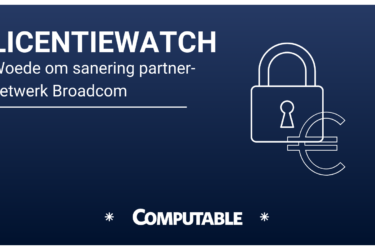"The beauty of standards is that there are so many to choose from". It may be amusing, but unfortunately this old joke is all too true in the IT industry. The problem is an unsolvable one since no one can wait for actual products until the standards have been defined; as a result proprietary products become established before the standards.
The product suppliers all make some concessions to the standards as they mature, but they always retain some of their proprietary features, which in fact means they are still proprietary. The prime example of this is SQL, a standard which is endorsed by all RDBMS products, but it is still a major exercise to port an application from one database product to another.
The Internet has improved the situation somewhat because it was developed for an academic user base and was well established before it came to the attention of commercial systems. The big worry now is that major suppliers are all trying to add their own proprietary flavours to their Internet related products. This will have the same effect of distorting standards as happened with RDBMS unless the user base firmly resists such efforts. At least the core standards for communications and markup (XML) are established all ready.
The one other sector which has had some success with standards, before the Internet, was ED, because it was the prime example of an application which was applied between companies and not dominantly in-house. EDI was never truly open, but within significant groups of users each EDI system worked well. Now with B2B e-commerce we are approaching a new era of EDI, and a chance to establish global standards. The involvement of the Internet bodies such as W3C is very helpful, but already we are seeing a diversification in services. Again there are some genuine reasons for this, because EDI covers a vast range and inevitably different industries perceive that they have their own special needs. Fortunately most industries have formed user dominated groups who are taking responsibility for establishing relevant standards. These are not all encompassing standards, but conversely they are based on the accepted standards. As an example XML has been adopted across the board, each industry consortium developing their own schema.
The retail industry is an established user of EDI and thus is a leading light in B2B and the use of the Internet for commercial purposes. Unfortunately, while there is a big global requirement for supply chains in the retail industry, the major players are more Nationally based. Thus there are different standards bodies for Europe, USA and the Pacific. This has been true in the past, for instance with competing standards for bar code marking (EAN versus UCC), and has probably been as good as we could hope for, but with the advent of the Internet and an increase in global trading the time is ripe to try and establish true standards.
The immediate problem is to cope with the standards so far proposed. The new EDI service centres are referred to as Exchanges (purists will want to differentiate between the older EDI and Exchanges, but in my opinion Exchanges are simply the latest incarnation of EDI networks), and there are already services in place which are incompatible. The biggest examples are GlobalNetExchange (GNX), WorldWide Retail Exchange (WWRE) and the Transora Exchange, between them already handling over $1,500 billion of sales and involving investments of around $300 million. Thus they are already entrenched and are not going to be too reactive to adapting to any one standard. The retail standards bodies, UCC, EAN and the recently formed Global Commerce Initiative (GCI) claim to be trying to resolve this problem before if becomes as shambolic as other standards failures. The need for GCI simply points to the perennial problem of standards, too many, too late!
The probable outcome of all this is the introduction of a higher level Exchange, one which concentrates on translation rather than message processing. This Exchange would translate message formats from one system to another and forward then to the relevant Exchanges for processing. These gateway exchanges could also provide an interface to the older EDI services. What a blessing XML is, it can make this nightmare scenario into a practical proposition. There is too much investment already in the existing Exchanges for them to change.








